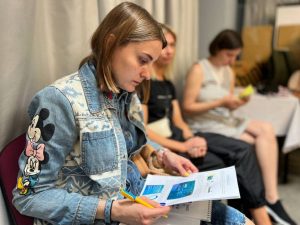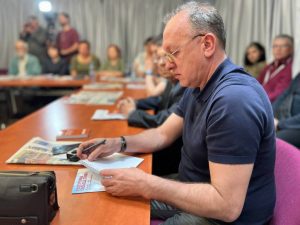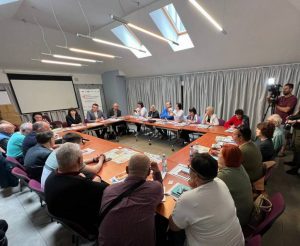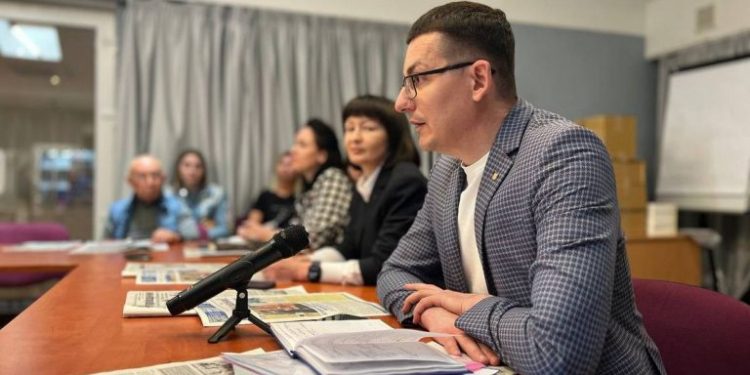According to the journalists working in front-line cities and towns, under constant shelling, for local residents, information about the course of the war, about what is happening around them is no less important than food or water, noted the President of the National Union of Journalists of Ukraine (NUJU), Sergiy Tomilenko, during today’s meeting with Kharkiv city media representatives.
He thanked the journalists of the Kharkiv Region for their resilience and for the fact that, despite the long-term occupation of a large part of the region, despite constant shelling, they continue to perform their professional duty. He promised that the NUJU, for its part, would support its colleagues as much as possible, especially in the front-line and de-occupied territories.
“Since last year, we have attracted about UAH 700,000 to help journalists and media of the Kharkiv Region. In addition, according to our recommendations, international partners are financing the Kharkiv media for ten months for a total of about UAH 2 million,” said Sergiy Tomilenko. “We continue to make efforts to give our media the strength and opportunity to be sustainable.”
The NUJU President noted that in conditions when the occupiers are destroying the infrastructure and mobile communications, the printed word becomes particularly important. For the first time, he presented the Union’s study of the needs of local newspapers in the de-occupied and front-line territories, carried out within the framework of the project called Increasing The Sustainability Of Ukrainian Media, which is financed by Swiss Solidarity and implemented with the support of the Swiss non-profit organization Fondation Hirondelle and the Institute of Regional Press and Information (IRMI, Ukraine).
“We can state that the situation in the local media is critical. The war is destroying the media market. According to our fellow editors, 40% of newspapers in the de-occupied and front-line territories refused to enter the subscription campaign for the year’s second half. They either give out their copies for free or stop working. 60% of newsrooms complain about the lack of funds for salaries, 17% say that there are no funds, and only 13% of newsrooms report that they can somehow continue their activities in a balanced way,” Sergiy Tomilenko said.
He noted that the key hope today is for international financial partners who support informing Ukrainians during the war period. 94% of the newsrooms surveyed by the Union say they need financial support. Most of them plan work for a maximum of 3-6 months, some – for a year.
” But all newsrooms perform a noble mission of informing their audience. Mass media, especially in the Kharkiv Region, such as the Obrii Iziumshchyny newspaper, are becoming a source for law enforcement investigations into the war crimes of the occupiers and collaborators. Local media provide important information that helps people save their lives and evacuate,” said Sergiy Tomilenko.
He recalled that the NUJU helped restore the work of 25 newspapers in the de-occupied and front-line territories, financing the printing of at least one issue or ensuring the stable output of the publication. The 26th publication should be the Visti newspaper from Sloviyansk.
Vita Kovalska, a deputy head of the Kharkiv Regional State Administration, took part in the meeting. She thanked the journalists for performing their professional duty in the dangerous conditions of war. She knows that print media editors have complaints about the work of Ukrposhta and is ready to respond to these complaints. Sergiy Tomilenko and Vita Kovalska agreed to maintain constant contact between the NUJU, which represents the interests of the journalistic community, and the Kharkiv Regional Military Administration.




NUJU Information Service

 THE NATIONAL UNION OF
JOURNALISTS OF UKRAINE
THE NATIONAL UNION OF
JOURNALISTS OF UKRAINE
















Discussion about this post